While it has a reputation for being overly tough, skirt steak is prized for its intense meaty flavor. Like flank steak, when cooked correctly, skirt steak is rich and tasty, but if cooked incorrectly it can get extremely tough and fibrous. That’s where sous vide comes in. The low and slow cooking method used by sous vide and Suvie helps to break down the tough fibrous tissue without overcooking the meat. The result is a perfect blend of beefy flavor and satisfying texture.
Follow this simple guide to learn how to cook skirt steak using Suvie and sous vide.
Temperature and cooking times for skirt steak
| Temperature | Time | Result |
| 125°F* | 1-3 hours | Rare |
| 130°F | 1-3 hours | Medium rare |
| 135°F | 1-3 hours | Medium |
| 145°F | 1-3 hours | Medium Well |
| 150°F | 1-3 hours | Well done |
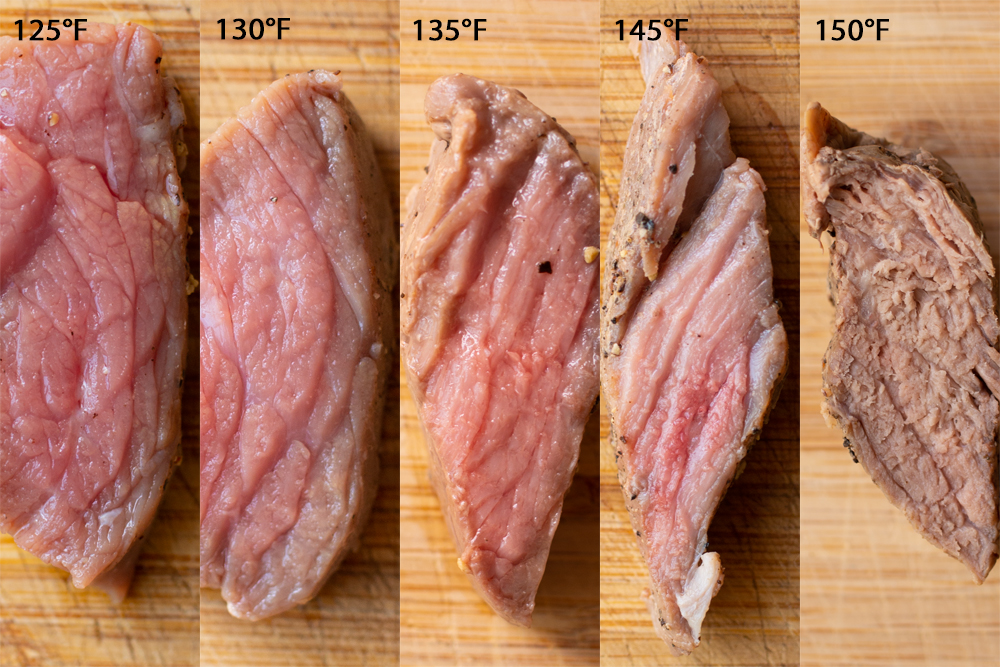
Like most sous vide meats, the longer you cook, the more tender your meat will become. Leaving the steak in the water bath for longer than 40 minutes won’t cook the meat far beyond the desired doneness but it will affect the texture. Skirt can be a tough cut of beef so it might benefit from a longer cook time and is best enjoyed rare or medium-rare.
In terms of timing, our recommended cook times are based on a 1-inch thick steak. If your steak is thicker than 1 inch consider adding about 30 minutes to the cook time.
Follow this link to find out more information about Suvie cooking times and temperatures.
Ingredients and Tools
- Skirt Steak (at least 1 inch thick)
- Salt
- Pepper
- Vegetable oil
- Herbs or additions
Equipment
- Suvie or immersion circulator
- A large pot (if using an immersion circulator)
- Vacuum sealer and bags or freezer safe recloseable bags
- A heavy, preferably cast iron, pan
Directions
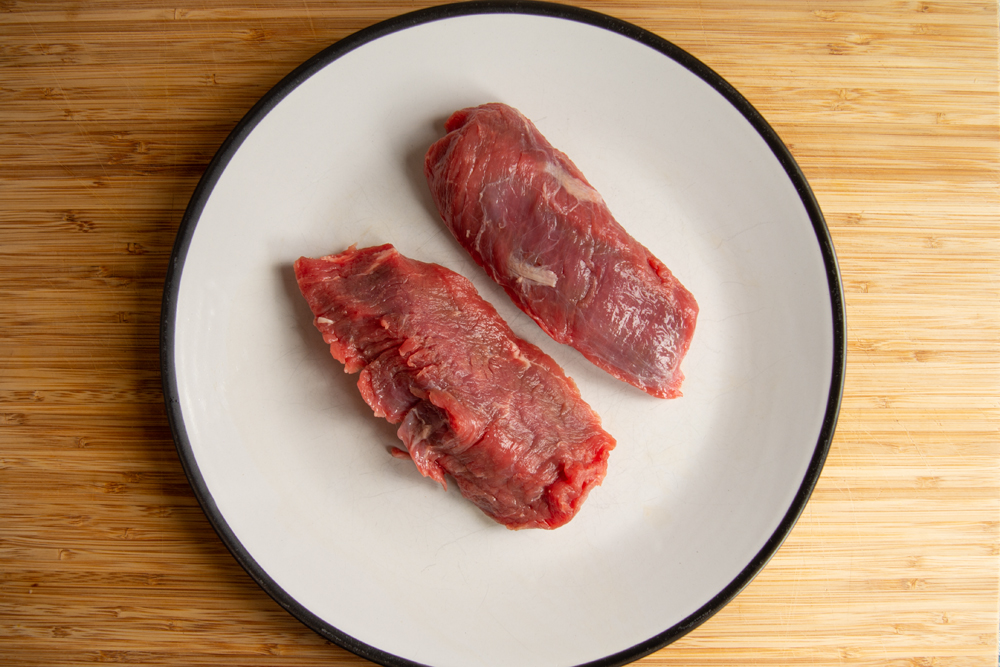
If you’re using a sous vide immersion circulator, pre-heat your water bath to the desired temperature.
Season the steak generously on all sides with salt and pepper.
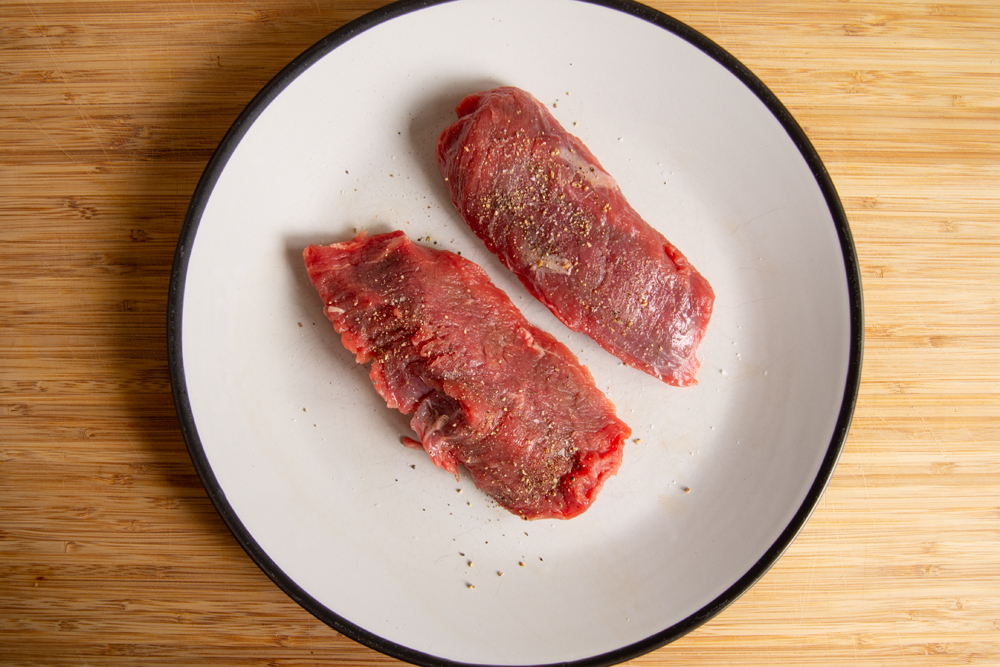
Place the steak into the plastic bag along with any herbs or additions and vacuum seal. If you’re using a recloseable bag, follow our guide on the water displacement method.

Lower the bag into the water bath and leave until cooked.
If you are using Suvie place the bag into a Suvie pan and cover completely with water. Place in Suvie and use the following settings:
Suvie Cook Settings
Bottom Zone: Sous Vide at 125-150°F for 40 minutes to 3 hours (based on desired doneness)
Top Zone: Sous Vide at 125-150°F for 40 minutes to 3 hours (based on desired doneness)
Once the cook is done remove the bag from your Suvie or water bath.
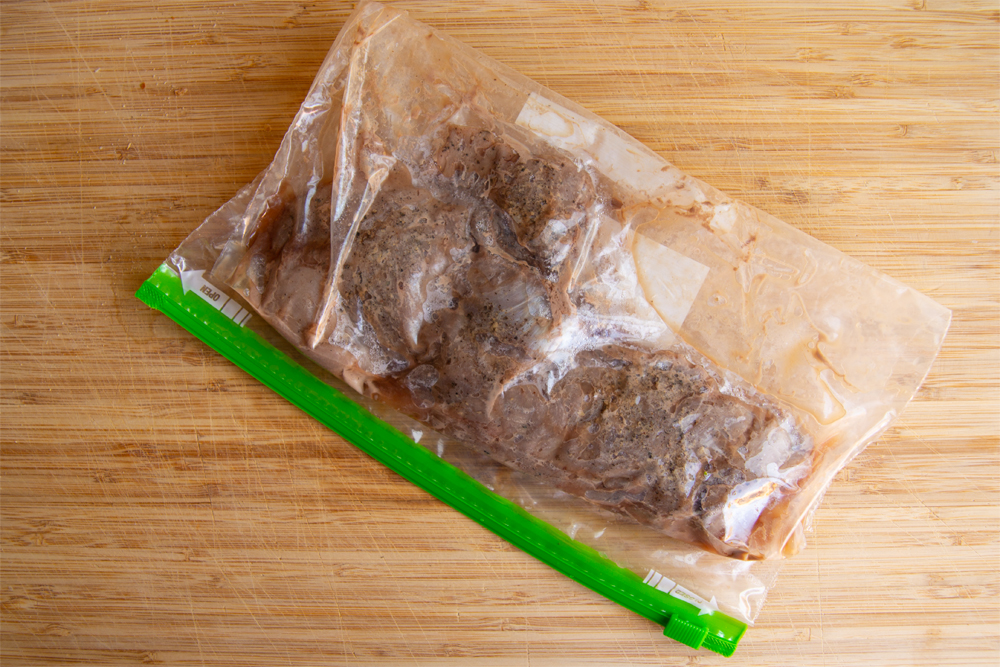
Finishing
Remove the steak from the bag and pat dry with paper towels.
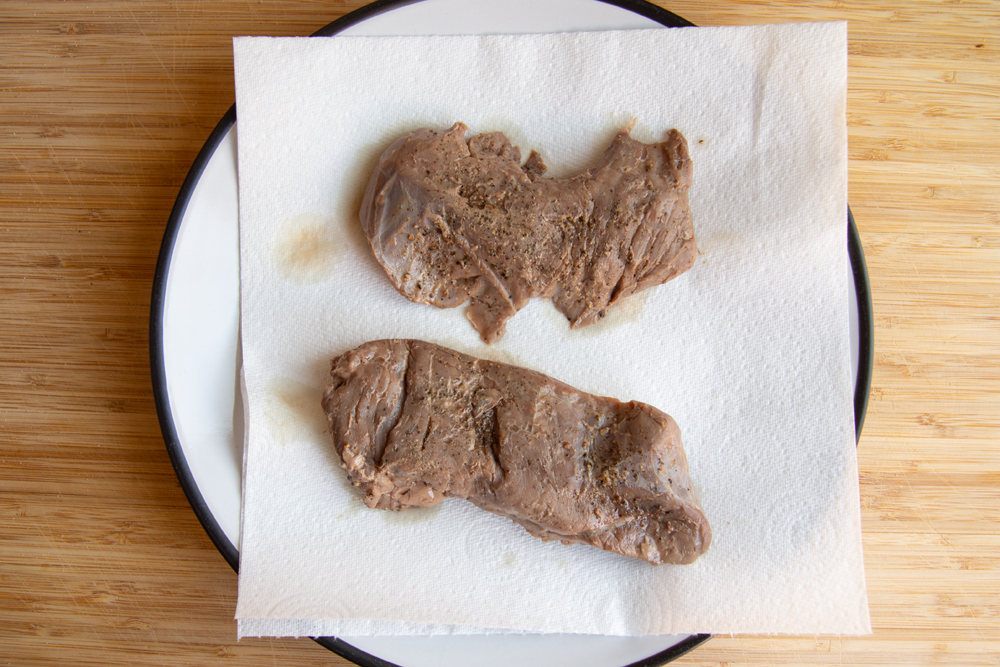
Pan Sear
Heat 1 tbsp vegetable oil in a cast-iron pan over high heat. Avoid using olive oil as it has a low smoke point.
Once the oil begins to smoke and shimmer, add the steak. and cook without moving for 15 seconds.
Flip steaks and repeat on the opposite side for 15 seconds. Continue flipping steaks in 15-second intervals until both sides are well browned.
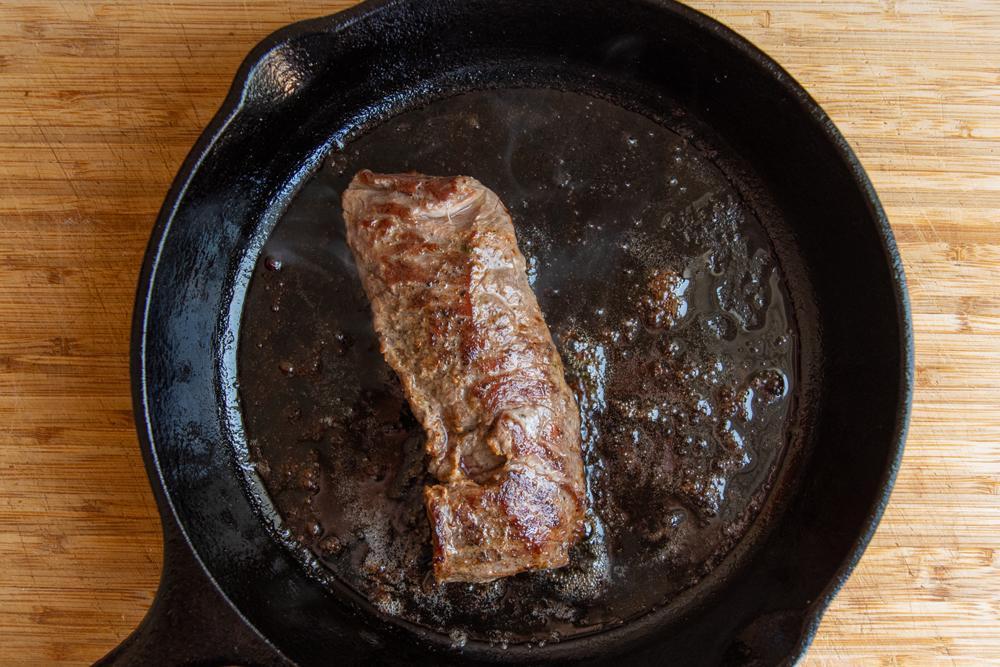
When serving it is best to slice skirt steak thinly perpendicular to the grain of the meat. This keeps each bite tender since the long muscle fibers can be difficult to eat.
Grill
Skirt steak makes is an ideal cut to finish over a hot grill.
Simply sear on a hot grill for between 1-2 minutes on each side, flipping often.
Remove from heat and rest for 5 minutes. Slice thinly against the grain before serving.
Recipes to try
Seared Steak with Asparagus, Mashed Potatoes, and Romesco Sauce

Carne Asada
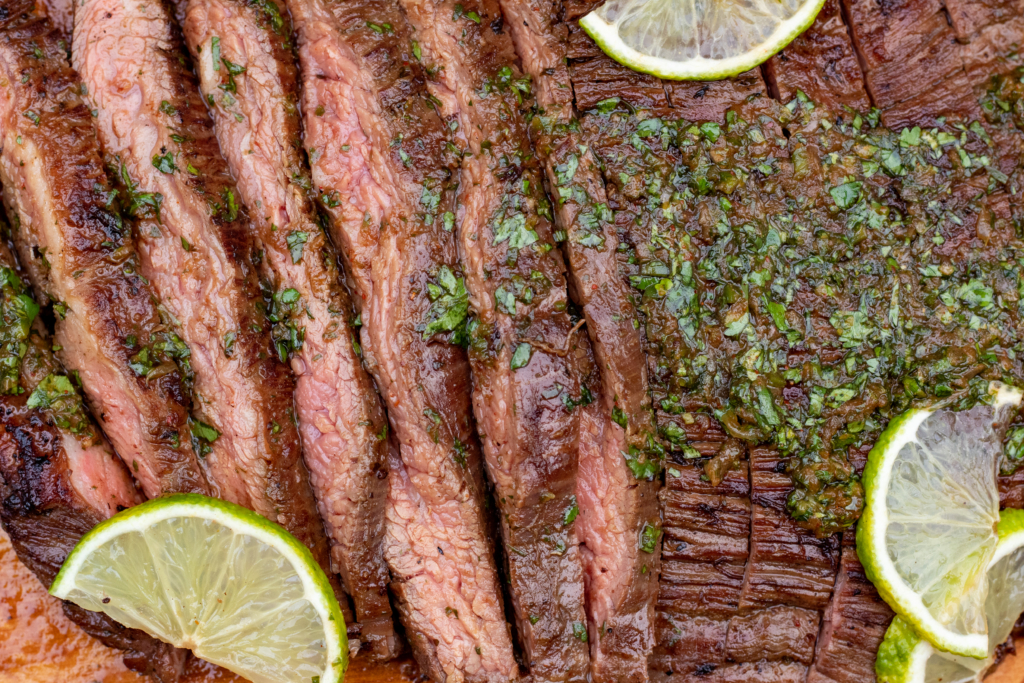
Chimichurri Steak
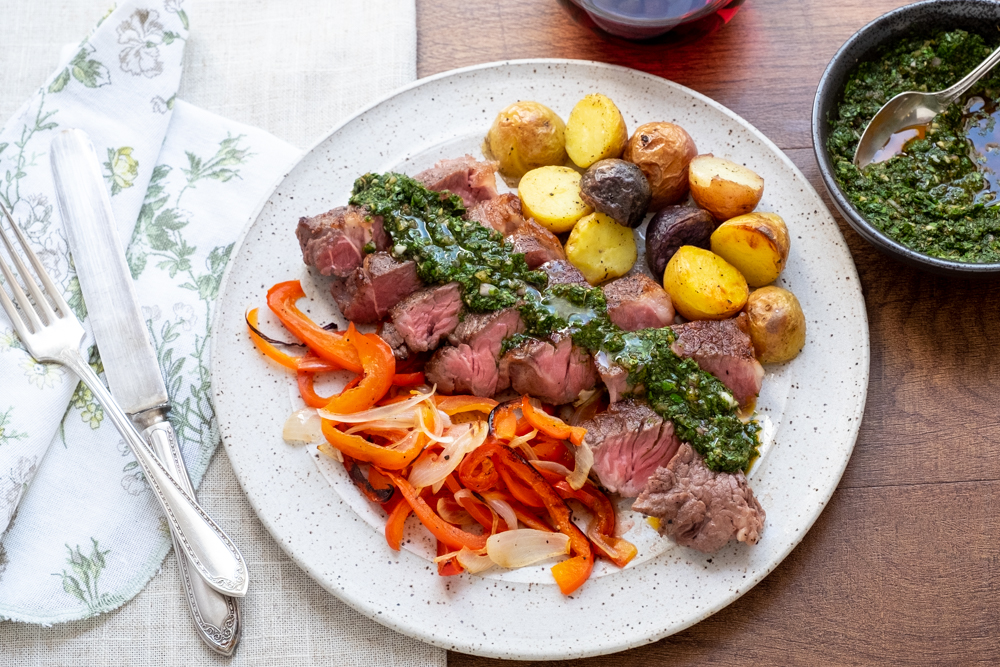
Steak au Poivre with Smashed Potatoes
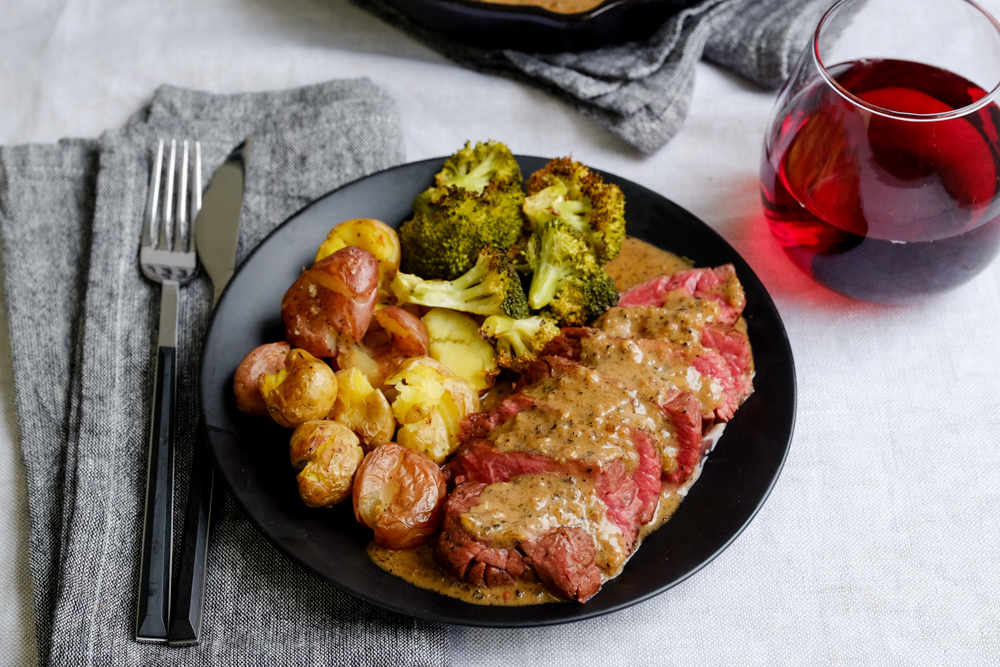
Chipotle Skirt Steak
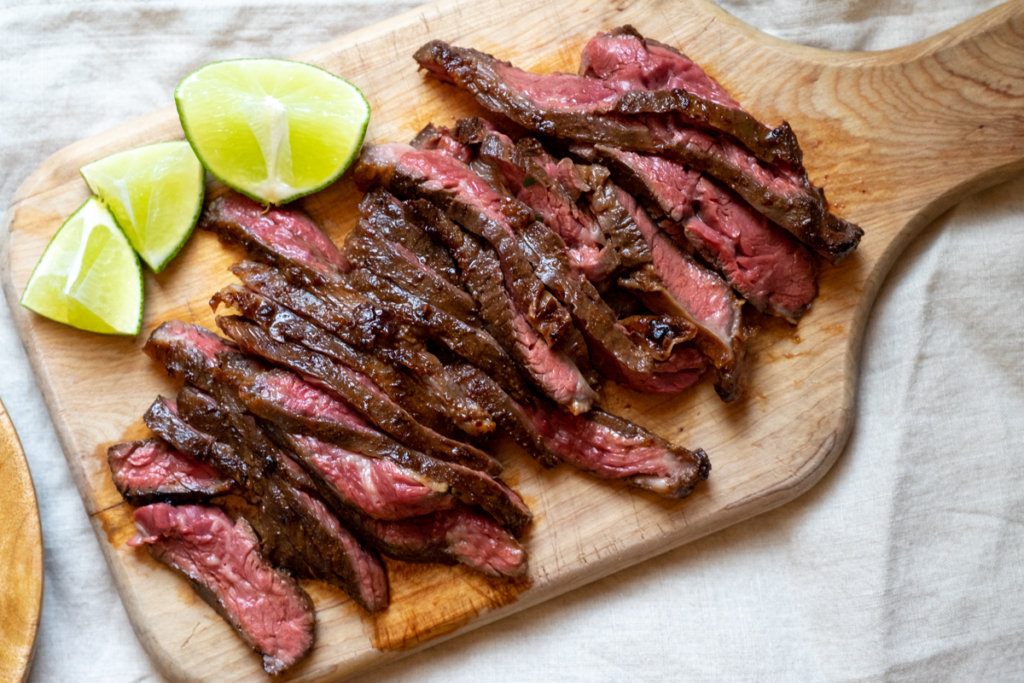
FAQs
Where can I find skirt steak
If you’re struggling to find skirt steak at the grocery store, give your local butcher a try.
Should I marinade the steak?
Skirt steak is a fibrous and tough cut of beef and can benefit from a pre-cook marinade to soften the texture and add an extra layer of flavor.
Are the cooking temperatures safe?
Our recommended cooking temperatures for Sous vide and Suvie are lower than what the USDA recommends, however, cooking times and temperatures are long enough and high enough for “pasteurization” to make your food safe. The USDA recommendations indicate the temperature needed to instantly kill food pathogens. By cooking for a longer time at a lower temperature we are able to achieve the same effect. However, high-risk populations should use extra caution when preparing foods below the USDA recommended temperatures.
Where can I get vacuum sealed proteins?
If you don’t want to fuss with vacuum sealers and recloseable bags you can skip the store and order the Suvie Protein Box. Just put together your ideal combination of preseasoned, portioned, and vacuum-packed high-quality meat, poultry, or fish. We deliver it to you frozen in a carefully-packed box.
Can I use any type of plastic bag?
You can, however, make sure that they are made from polyethylene. Brand name recloseable bags are made using polyethylene which is a BPA and dioxin free plastic that can safely handle sous vide cooking temperatures up to 190°F. Some generic branded plastic bags are made using cheaper polyvinyl chloride (PVC) which cannot handle high temps and contains chemicals that can leach into food.
Should I leave my steak to rest before serving?
Nope! One of the great things about cooking with Suvie and sous vide is the evenness of temperature. While the outer edges will be hotter from the sear, the interior of the steak will be cooked to the same temperature throughout. This means no resting time is necessary.
I forgot to defrost my steak, what now?
No problem! You can sous vide steak directly from frozen. Just add 1 hour to the cooking time.
Can I cool my steak after the sous vide process and sear it later?
For food safety and general food quality reasons, we don’t recommend it. Steak should be seared and eaten soon after the sous vide step.
Can I leave my steak in the water bath indefinitely?
You can, but you shouldn’t. While leaving steak in sous vide for long periods of time won’t result in overcooking, it will have a negative effect on the overall texture of the meat.



